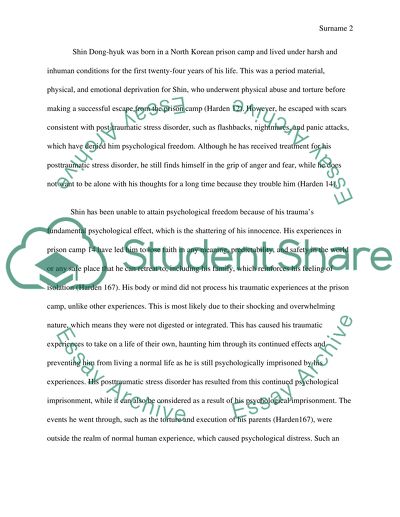Cite this document
(“Escape from Camp 14 by Blaine Harden Essay Example | Topics and Well Written Essays - 1500 words”, n.d.)
Retrieved from https://studentshare.org/english/1627788-escape-from-camp-14-by-blaine-harden
Retrieved from https://studentshare.org/english/1627788-escape-from-camp-14-by-blaine-harden
(Escape from Camp 14 by Blaine Harden Essay Example | Topics and Well Written Essays - 1500 Words)
https://studentshare.org/english/1627788-escape-from-camp-14-by-blaine-harden.
https://studentshare.org/english/1627788-escape-from-camp-14-by-blaine-harden.
“Escape from Camp 14 by Blaine Harden Essay Example | Topics and Well Written Essays - 1500 Words”, n.d. https://studentshare.org/english/1627788-escape-from-camp-14-by-blaine-harden.


